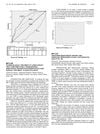 March 2021 in “Journal of The European Academy of Dermatology and Venereology”
March 2021 in “Journal of The European Academy of Dermatology and Venereology” Low quality of life and high HSS-29 scores increase risk of losing patients during treatment.
 January 2021 in “Esculapio”
January 2021 in “Esculapio” Using your own blood (PRP) can effectively increase hair count and strength in men with hair loss.
 January 2020 in “Archives of urology”
January 2020 in “Archives of urology” Finasteride, a drug used for certain conditions, can cause serious side effects like sexual dysfunction, suicidal thoughts, and increased diabetes risk, and there's a need for more awareness and research about these effects.
 July 2019 in “Dermatología Cosmética, Médica y Quirúrgica”
July 2019 in “Dermatología Cosmética, Médica y Quirúrgica” Small injections of dutasteride improved hair thickness in men with hair loss without major side effects.
 June 2018 in “International Review of Intellectual Property and Competition Law”
June 2018 in “International Review of Intellectual Property and Competition Law”  April 2017 in “The Journal of Urology”
April 2017 in “The Journal of Urology” Finasteride before TURP reduces blood loss and improves early postoperative quality of life.
 February 2017 in “The Journal of Sexual Medicine”
February 2017 in “The Journal of Sexual Medicine” Finasteride for hair loss can cause erectile dysfunction due to tissue fibrosis.
 December 2016 in “The Journal of Sexual Medicine”
December 2016 in “The Journal of Sexual Medicine” Finasteride for hair loss may cause erectile dysfunction due to tissue fibrosis, and various factors contribute to female sexual dysfunction.
 April 2010 in “The Journal of Urology”
April 2010 in “The Journal of Urology” Hair loss, prostate size, and urinary issues are related due to androgen effects.
 417 citations,
February 2004 in “The Journal of Clinical Endocrinology and Metabolism”
417 citations,
February 2004 in “The Journal of Clinical Endocrinology and Metabolism” Testosterone therapy increases bone density in older men with low testosterone levels.
 370 citations,
September 1999 in “The New England Journal of Medicine”
370 citations,
September 1999 in “The New England Journal of Medicine” Finasteride and minoxidil are effective for hair loss, but continued research is needed for better treatments.
 260 citations,
July 2010 in “Cell”
260 citations,
July 2010 in “Cell” Mutations in the SRD5A3 gene cause a new type of glycosylation disorder by blocking the production of a molecule necessary for protein glycosylation.
 239 citations,
November 2000 in “Journal of The American Academy of Dermatology”
239 citations,
November 2000 in “Journal of The American Academy of Dermatology” Finasteride doesn't effectively treat hair loss in postmenopausal women.
 233 citations,
November 2002 in “The journal of investigative dermatology/Journal of investigative dermatology”
233 citations,
November 2002 in “The journal of investigative dermatology/Journal of investigative dermatology” Creating stronger blockers for skin enzymes might lead to better treatment for conditions like acne and excessive hair growth.
 143 citations,
October 1996 in “Dermatologic Clinics”
143 citations,
October 1996 in “Dermatologic Clinics” Too much androgen can cause hair loss; finasteride may help.
 127 citations,
May 2004 in “PubMed”
127 citations,
May 2004 in “PubMed” Finasteride may help some male chronic pelvic pain patients, but more research needed.
 104 citations,
October 1999 in “The Journal of Urology”
104 citations,
October 1999 in “The Journal of Urology” Finasteride doesn't harm male fertility or sperm quality, but may slightly reduce ejaculate volume.
 100 citations,
April 2010 in “Expert Opinion on Pharmacotherapy”
100 citations,
April 2010 in “Expert Opinion on Pharmacotherapy” Hair loss in men treated best with early medication or transplant, new treatments researched.
 89 citations,
December 2006 in “Lancet Oncology”
89 citations,
December 2006 in “Lancet Oncology” Taking 1 mg/day finasteride for hair loss significantly lowers PSA levels in men, which may affect prostate cancer screening.
 81 citations,
June 2014 in “American Journal of Men's Health”
81 citations,
June 2014 in “American Journal of Men's Health” Finasteride can cause lasting sexual, emotional, and cognitive issues, with varying severity.
 70 citations,
February 2017 in “Dermatologic Surgery”
70 citations,
February 2017 in “Dermatologic Surgery” Treatment with plasma rich in growth factors improved hair density and thickness for hair loss patients.
 66 citations,
September 2008 in “Dermatologic therapy”
66 citations,
September 2008 in “Dermatologic therapy” The conclusion is that the best initial treatment for hirsutism is usually oral contraceptives, with the addition of antiandrogens or insulin sensitizers if needed, and topical eflornithine or laser treatments as supplementary options.
 66 citations,
June 2006 in “Journal of The American Academy of Dermatology”
66 citations,
June 2006 in “Journal of The American Academy of Dermatology” Finasteride increases hair weight and count in men with hair loss, with best results after four years.
 65 citations,
January 2011 in “Frontiers in Endocrinology”
65 citations,
January 2011 in “Frontiers in Endocrinology” Neurosteroids show promise for treating epilepsy and more research is needed.
 61 citations,
May 2010 in “Integrative Cancer Therapies”
61 citations,
May 2010 in “Integrative Cancer Therapies” There is no clear recommendation for using selenium in cancer patients; it may be beneficial to correct low selenium levels before treatment.
 58 citations,
April 2017 in “The Journal of Steroid Biochemistry and Molecular Biology”
58 citations,
April 2017 in “The Journal of Steroid Biochemistry and Molecular Biology” Post-finasteride patients show changed neuroactive steroid levels, possibly causing erectile dysfunction and depression.
 58 citations,
September 2012 in “Dermatologic Clinics”
58 citations,
September 2012 in “Dermatologic Clinics” Male pattern hair loss caused by follicular miniaturization; early diagnosis and treatment can reduce psychological burden.
 56 citations,
January 2015 in “Circulation”
56 citations,
January 2015 in “Circulation” Finasteride helps reduce heart issues and improves heart function.
 54 citations,
September 2013 in “Fertility and Sterility”
54 citations,
September 2013 in “Fertility and Sterility” Finasteride can reduce fertility in some men, but stopping it increases sperm count.
 54 citations,
April 2010 in “Baillière's best practice and research in clinical endocrinology and metabolism/Baillière's best practice & research. Clinical endocrinology & metabolism”
54 citations,
April 2010 in “Baillière's best practice and research in clinical endocrinology and metabolism/Baillière's best practice & research. Clinical endocrinology & metabolism” Impaired androgen production in 46,XY DSDs causes ambiguous genitalia and requires long-term care.






























